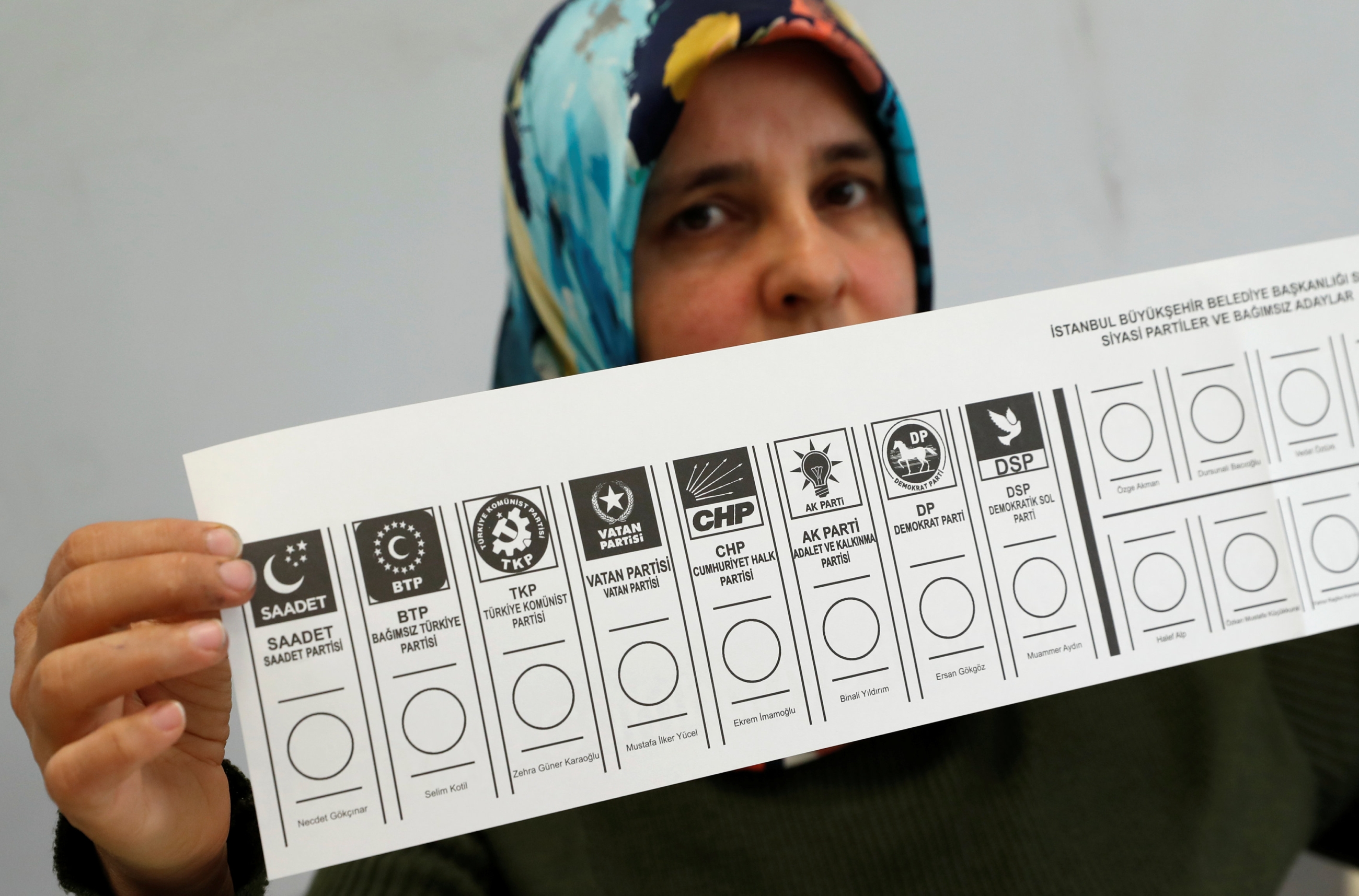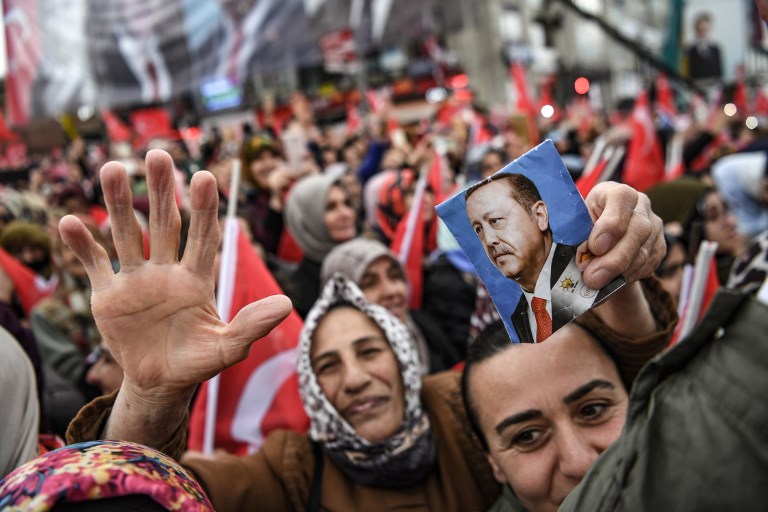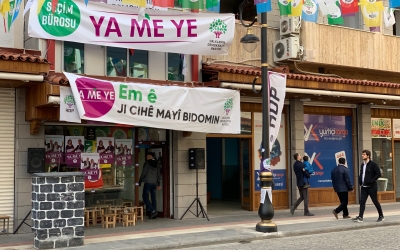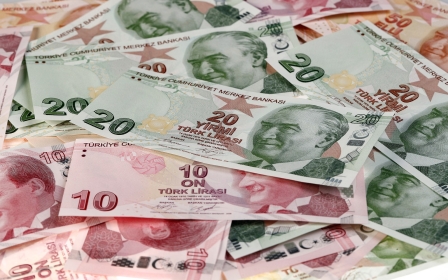Turkey heads to the polls in bellweather municipal elections

More than 50 million Turkish citizens will cast their votes on Sunday in local elections in 81 provinces across Turkey. It is seen as the last major electoral test for President Recep Tayyip Erdogan before 2023, when his presidential mandate expires.
Voters will need to choose their mayors and city councillors for a five-year term from 12 parties that represent a broad range of political viewpoints.
Two main alliances are fighting tooth and nail for metropolises and major cities in a race that could determine the future of the country's politics. Some 61,000 police officers have been deployed across the country to provide security. Thousands of election observers from political parties and NGOs will monitor the proceedings.
In order to increase the chances of winning the election, Erdogan's ruling Justice and Development Party (AKP) has continued its partnership with the Nationalist Movement Party (MHP), together consolidating most of the right-wing votes under what they call the "People Alliance".
New MEE newsletter: Jerusalem Dispatch
Sign up to get the latest insights and analysis on Israel-Palestine, alongside Turkey Unpacked and other MEE newsletters
This election, as any other critical election in the last six years, has a meaning beyond choosing mayors
- Recep Tayyip Erdogan
Turkish opposition, in response, created its own rival coalition dubbed the "Nation Alliance," which consists of the secularist Republican People's Party (CHP) and nationalist Good Party (IYI) .
Surprisingly, Turkey's pro-Kurdish Peoples' Democracy Party (HDP) this time has not run any candidates in major western cities, in a move that has been considered as a veiled alliance with other opposition parties designed to increase the chances of reducing the People Alliance's hold on the country.
An economic recession combined with rising food prices has had a toll on the average citizen, and pushed Erdogan's AKP to turn straightforward municipal elections into a campaign themed around the "survival of the nation".
"This election, as any other critical election in the last six years, has a meaning beyond choosing mayors," Erdogan said on Saturday during one of the six rallies he attended in Istanbul.
"We will decide what kind of Turkey we want for ourselves and our children as well."
The opposition, on the other hand, has focused on the rising unemployment, dwindling salaries and problems surrounding urban centres.
For the HDP, the main target is regaining the control of municipalities in Turkey's southeast that were seized by government trustees over charges of terrorism.
Turkey has gone through five elections and one referendum in the past five years that have considerably polarised the country amid a refugee crisis, a slowing economy and an attempted coup.
What to watch
Turkey observers on Sunday will turn their heads to the elections conducted in Istanbul, the country's largest city, and Ankara, the capital. Candidates from ruling and opposition alliances are fighting for every vote in very tight elections in these two cities.
Current mayors in both cities are members of the AKP. In Ankara, however, polls consistently give a lead to opposition candidates. The HDP is not running in the capital, so where its traditional voters turn to instead could be crucial in determining the victor.
Other than Turkey's largest two cities, tight elections in Bursa, Balikesir, Antalya, Adana, Mersin, Hatay, Sanliurfa and Adiyaman are set to be very significant indicators of government popularity in the country, as these cities are at present controlled by the ruling party and its ally. HDP voters, again, would be likely to be the kingmakers in these cities as well.
In the southeast, analysts will be closely watching the results of the HDP's campaign to reclaim government-run municipalities and prove its political significance in Kurdish-majority areas. The HDP is expected to win the majority of towns, but the share of the votes it receives will measure the popularity of its policies.
Erdogan's statements once polls close on Sunday night are set to reveal a sense of his political and economic roadmap following the elections. In the case of broad People Alliance victories, markets in Turkey are expected to rally. If not, the beleaguered Turkish lira is expected to weaken against the US dollar.
MHP chairman and Erdogan ally Devlet Bahceli's post-poll remarks are expected to carry political significance. Bahceli has triggered two important snap elections in Turkey, one of which facilitated Erdogan's rise to power.
Over the past six months he has made contradictory statements on the future of Turkish politics, hinting that if the People Alliance fails to deliver Istanbul, Ankara and Izmir, a snap general election might be needed.
Earlier this month, Bahceli said the People Alliance couldn't get less than 51 percent of the nationwide vote, otherwise people could question the validity of the current political leadership. Erdogan currently depends on MHP MPs to hold a majority in parliament.
Middle East Eye delivers independent and unrivalled coverage and analysis of the Middle East, North Africa and beyond. To learn more about republishing this content and the associated fees, please fill out this form. More about MEE can be found here.






